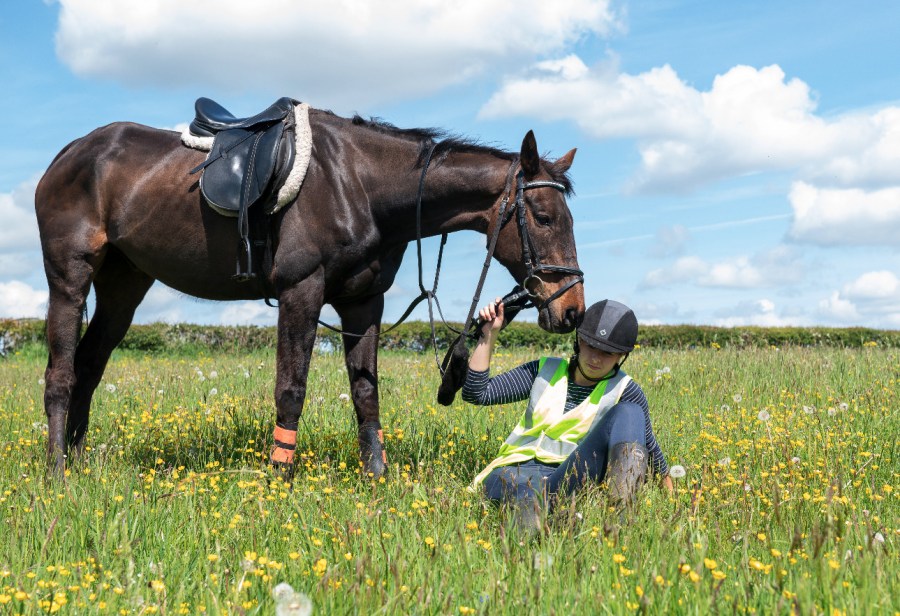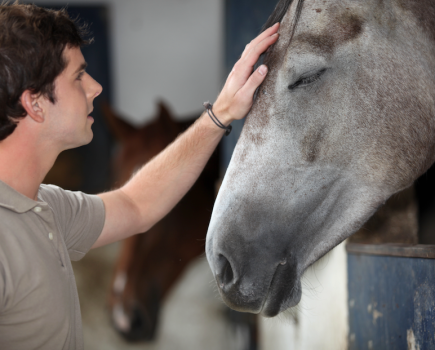It’s common knowledge amongst riders that a riding hat should be replaced following a fall, but how many of us actually take that advice? And that if you’ve had a head injury from that fall, did you know that you shouldn’t ride for up to three months? Dr Diane Fisher, an A&E doctor and award-winning social media influencer for her page All the Kings Horses, discussed what happens to your brain following a head injury, and why it’s so important to get the right kind of rest on the Horse & Country Stage at Your Horse Live.
“Basically, the brain sits in fluid within the skull, and although it’s pretty tight, it can move,” said Dr Di. “When you bang your head you have two injuries: you have the initial injury [where your skull hits] but because the brain floats, it bangs on the back [of your skull] as well. At lot of injuries are worse on the second knock, on the bang on the inside.”
Essentially, this means that when you hit your head, your brain smacks into the inside of your skull at the location you made contact, but also the opposite side when it bounces back – leaving you with two points of injury.
“When we look at a CT, we look at where they hit – which is why we want to see your hat – and directly opposite,” explained Dr Di. “The cells are just very unhappy, they leak a little bit where it happened. We don’t see that on a CT scan, but we know it affects other brain cells around where that happened. They can be unhappy for quite a period of time, which is why you get the symptoms of concussion.”
Symptoms of concussion include:
- Loss of consciousness
- Vomiting
- Changes in behaviour, like irritation or a loss of interest in things around you
- Problems with memory
Another fall could cause ‘catastrophic injury’
Following a head injury, the likelihood of serious re-injury is high should you hit your head again, which is why you can be banned from competitions.
“Unfortunately there is a scenario where if you bump your head again within a period of time that that can cause catastrophic injury to the brain and someone can be dead within minutes,” cautioned Dr Di. “A proper, decent brain injury means don’t go nearing [riding].”
One of the key things you must do following a head injury is rest – but that doesn’t mean scrolling through social media.
“Resting is thought to be on your phone, watching TV, snuggled on the sofa. But actually for your brain, looking at your phone is like running the London Marathon because it’s working really hard,” explained Dr Di. “Rest for the brain is zero screens.”








